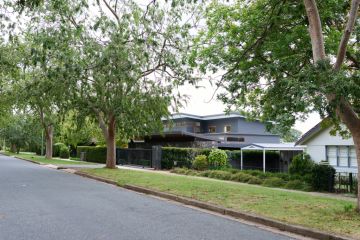A targeted approach needed for accessible housing

David Shearer has been working with Independent Property Group for 28 years and is the company’s director of project planning. This is part two of a two-part discussion.
TT: Last week you mentioned that you are not aware of an accessible apartment Independent has sold that was adapted or configured to suit the needs of a someone with accessibility or mobility issues who actually needs it.
DS: Unfortunately this is the case, and although I hoped for some response, not received a single response was received since your column last weekend.
TT: What has gone wrong?
DS: It’s a simple case of misappropriated intent. Every new development in Canberra must contain a quota of 10 per cent adaptable dwellings designed to suit the Australian standard for accessible housing, yet after the design approval process, no one keeps a log or register of these apartments, so even if someone in a wheelchair wanted to move into a development full of these apartments, they would have no idea which apartments they are, and even if they found out, those who own them or rent them are not going to give up their apartment and it’s nice wide car bay, as it is theirs, they have no obligation to share it.
TT: This intrigues me! So all these new apartment developments across Canberra are full of accessible units and car bays that a person who needs can never access?
DS: Correct – As these apartments and car bays are in private ownership, and they are “adaptable”, not “adapted”, they are not marked or nominated as wheelchair friendly. They are effectively invisible to those who need them. Until such time as an apartment is “adapted” there is no legal requirement to make the car bays available to those who need them.
TT: Surely our planning authority who checks everything keeps a register of these apartments?
DS: I have talked to ACTEPD directly and no they don’t. However even if they did it would make no difference as these apartments are all sold to whoever wants to buy them, and based on the demographics of people who buy and rent them, that doesn’t seem to include anyone within the target market. The provisioning is a mandatory requirement that is not getting any take-up at all, It’s a very big waste of money and resources, and that mis-targeted cost is being worn by the buyers of all apartments.
TT: When you say that it’s a waste, is that just because all this provision is missing the mark?
DS: It’s far worse than that. Consider a normal basement carpark costs around $30,000 to build right now and a 50 per cent wider accessible carpark is at least $45,000 – that’s $15,000 wasted for each unit made accessible, before we consider the costs of the accessible designed apartment. So for a development of 300 apartments with 30 accessible units (that no one knows are there) that’s $450,000 of wasted car-parking build cost that benefits no one. Imagine what that $450,000 could achieve if it were properly targeted in that one development. Then imagine what could be achieved if that $$$ was available across all developments. Imagine if those who need a fully adapted apartment could actually get one, and all that wasted concrete for car bays was actually finding its target?
TT: To use the Australian vernacular…struth! What could fix this?
DS: The current policy is a well-intended misfire. It seems incredible that the NDIS is incentivising developers in other jurisdictions to build adaptable apartments, yet we have been doing this in Canberra for the last 15 years, with zero take-up from people who need this housing. I would love to hear from people who work with disability housing or anyone who is frustrated trying to solve their accessible housing needs. I think we can get our heads together to design a far more targeted system that will actually provide the accessible housing supply that is intended, to those who really need it.
I have made my thoughts on this known to our government planners, but I am just a development planning consultant without the “needs based credibility” to effect change. To effect a more targeted and effective housing policy will need engagement from organisations and the people who are affected or considered the target market for this policy.
I invite anyone and everyone with an interest to contact me to progress this challenge, I hope we can do far better.
TT: David, Thank you. I would love to hear how this challenge progresses.
Tony Trobe is director of the local practice TT Architecture. Is there a planning or design issue in Canberra you’d like to discuss? Email tonytrobe@ttarchitecture.com.au.
We recommend
States
Capital Cities
Capital Cities - Rentals
Popular Areas
Allhomes
More







